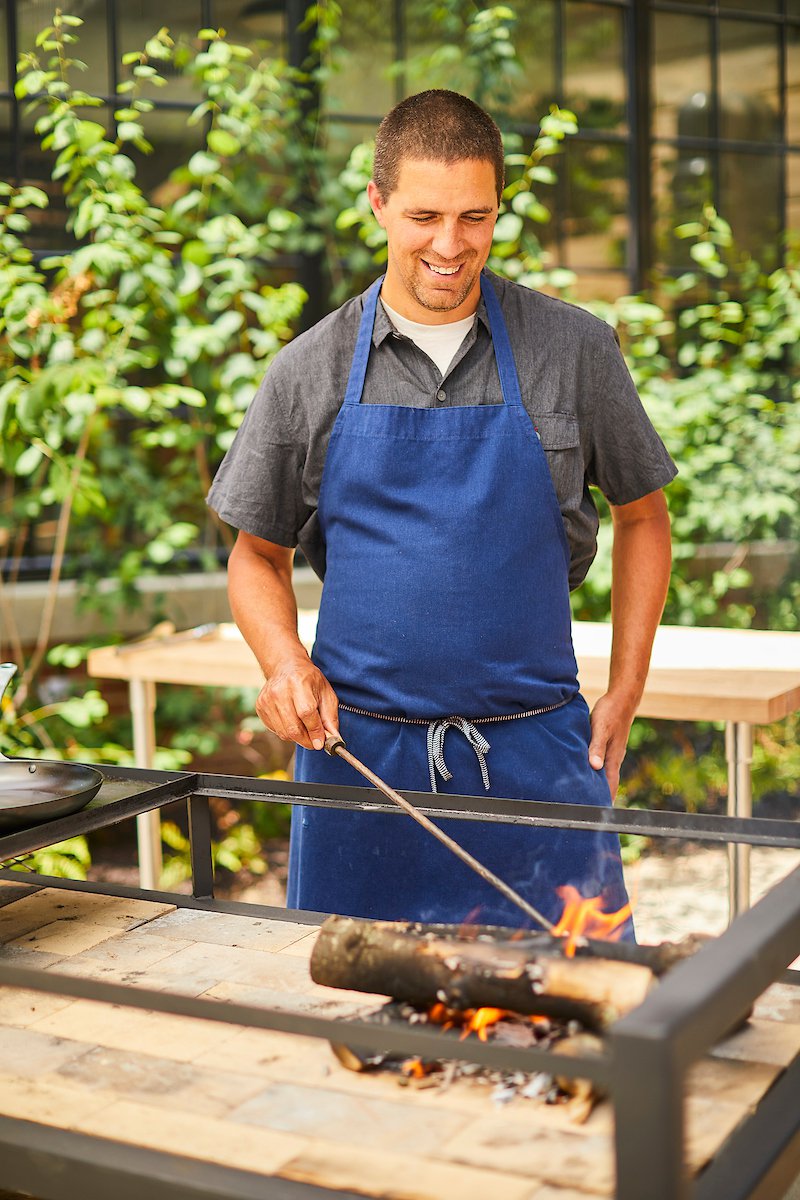At Locksley Estates in Middleburg, purveyors of wine, cheese, and bread find a haven.


(Courtesy of Ag District)
“Our goal is to return sustainable agriculture to Loudoun County,” says owner Jennifer McCloud.
The Ag District is home to a trio of purveyors: McCloud’s Chrysalis Vineyards, Locksley Farmstead Cheese Company, and Little River Bakehouse; all clustered around the Ag District Center, a gathering place and tasting room offering scenic vistas of the Bull Run Mountains.
Along with Chrysalis Vineyards’ fabled native Norton wines (Virginia’s oldest wine grape, the Norton was first cultivated in the 1820s), visitors to The Ag District can enjoy sandwiches, pizzas, salads, and more, prepared by Chef Keaton Beus, formerly of Magnolia’s at the Mill in Purcellville. “One of our big draws is that our ingredients are farm-fresh,” says McCloud.

(Wine tasting station: Courtesy of Ag District)
The Ag District is a long-time dream for McCloud, who bought her first 209 acres in 1998, determined to bring back production of Virginia’s native Norton grape. Today, Chrysalis features 40 acres of said grape, the world’s largest planting, and offers a propagation program to assist vineyards in growing this hearty and richly-flavored fruit.
With the first land purchased, she dubbed her holdings Locksley Estate referencing Robin Hood. The mix of enterprises—winery, bakery, and creamery—reflect the varied terrain and uses for her farmland. “It also draws people who are passionate about particular foods. For me it’s wine. For Steven Stiles, our dairy manager, it’s caring for cows and producing high-quality cheese. For Keaton, it’s about crafting the best food.”
Cheese-making is fueled by the herd of predominantly Brown Swiss, Jersey, and Holstein cattle. The 10 cheeses in production are named after the denizens of Sherwood Forest—among them, Maid Marion Camembert, Friar Tuck Fromage Blanc, Nottingham Gouda, Little John Cheddar.

(Little River Bakehouse pizza: Courtesy of Ag District)
The bakery uses heritage strains of wheat and a state-of-the-art rotating hearth oven that yields flatbreads, baguettes, focaccia, and more.
And, of course, there’s the wine. “I fell in love with Norton; it spoke to the wild character of America,” says McCloud. She notes the grape’s historical significance and its disease resistance which is so strong that, if a fungus attacks a leaf, the plant will produce a ring of necrotic tissue to halt fungus growth.
In the 1800s, Norton wines won gold at the 1873 Vienna World Exposition in Austria and were praised as “best red wine of all nations.” Gold medals in Paris followed. But the wine died out during Prohibition and, when winemaking was again legalized, Norton grapes—hard to start and hard to grow—were at a disadvantage.
Over the past 20 years, Chrysalis Vineyards has become recognized worldwide for its Norton wines. “It’s our signature grape,” says McCloud.
Still, for McCloud, the most rewarding moment is when visitors ask: where does it all come from? With that, she simply points to the rolling landscape. “Here,” she says, “It comes from here.”
This article originally appeared in the October 2021 issue.








